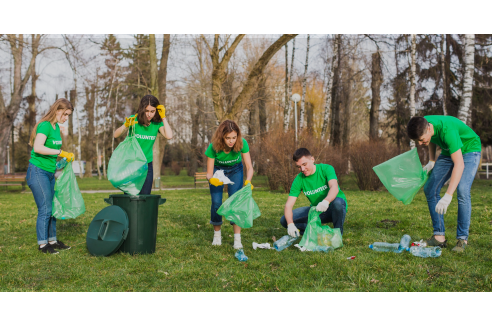Compulsive hoarding is a complex psychological disorder characterized by the excessive accumulation of possessions. Also, it is about the inability to discard them, which poses significant challenges to individuals and their communities. As the impact of hoarding becomes increasingly recognized, the need for effective intervention strategies has become apparent. In the state of Massachusetts, a substantial number of hoarding cases are reported. Considering the surge, the provision of tailored clean up services for hoarder’s unique needs has emerged as a solution.
However, addressing the cleaning needs of hoarders presents many legal and ethical dilemmas. It is true for those individuals seeking assistance and the service providers involved. Think of this as an attempt to help you explore the intricate landscape of a cleaning company.
Legal Considerations for Cleaning Services: Regulations and Licensing
When choosing a cleaning services company, it’s important to consider various legal aspects. Further, it ensures you’re working with a reputable and compliant provider.
Here are some legal considerations to keep in mind when selecting a hoarding clean up services company. You can protect everyone’s interests while fostering a positive and compliant working relationship.
- Licensing and Insurance:
Verify that the hoarding house cleaning services in Massachusetts hold the necessary licenses. They must have the permits required by local authorities to operate legally. Additionally, ensure they have appropriate insurance coverage, such as general liability insurance. After all, it protects you against any damages or injuries that may occur during their services.
- Workers’ Compensation:
Inquire if the cleaning services company provides workers’ compensation coverage for its employees. This insurance protects workers in case of work-related injuries and can prevent potential legal liabilities for you as a client.
- Background Checks and Screening:
Ask the company about their employee screening process, including background checks. It’s important to ensure that the individuals entering your premises are trustworthy and do not pose any security risks.
- Contracts and Agreements:
Review and understand the terms and conditions outlined in the company’s contract or service agreement. Guarantee that it covers important aspects such as:
- Pricing
- Scope of work
- Liability
- Termination clauses
- Any specific requirements you may have
- Privacy and Confidentiality:
Discuss how the hoarding cleaning services company handles client information and privacy. They should have measures in place to protect any sensitive or confidential data encountered during their services.
- Sustainability Practices:
Ask about the company’s environmental practices and commitment to sustainability. This can include the use of eco-friendly cleaning products, recycling policies, and energy-efficient equipment. Choosing a company that prioritizes sustainability aligns with ethical and legal responsibilities toward the environment.
Ethical Dilemmas in Hoarding Cleanups: Balancing Autonomy and Safety
Hoarding cleanups presents several ethical dilemmas that involve balancing autonomy and safety concerns. Addressing them requires a thoughtful and individualized approach. It’s significant to involve professionals with expertise in hoarding disorders, mental health, and principles. They assist in navigating these complex situations while prioritizing autonomy and safety.
Some common ethical considerations that arise in hoarding cleanup situations include the following:
- Autonomy and Respect for Individual Choices:
Individuals with hoarding tendencies may strongly resist interventions or the removal of their possessions. Respecting their autonomy and individual choices becomes a delicate balance.
It’s important to consider the person’s capacity to make decisions and involve them in the process as much as possible. Communicating with empathy and understanding and providing options can help navigate this ethical dilemma.
- Safety and Health Risks:
Hoarding environments can pose significant safety hazards, such as:
- Fire risks
- Structural instability
- Sanitation issues
- Presence of mold or pests
- Biohazards
Negating the need to ensure a safe and healthy living environment with the individual’s autonomy can be challenging.
Assessing and addressing immediate risks is crucial, but decisions regarding the removal or disposal of items should be made carefully. It should be done while considering the individual’s emotional well-being.
- Trauma-Informed Approach:
Hoarding cleanups can be emotionally distressing for individuals with hoarding disorder. The process of removing possessions, which may hold significant emotional attachments, can trigger anxiety, grief, or trauma.
Adopting a trauma-informed approach, emphasizing empathy, understanding, and sensitivity, can help mitigate the potential harm caused during the cleanup process.
- Collaboration and Multidisciplinary Approach:
In complex hoarding cases, it is often beneficial to involve a multidisciplinary team, including:
- Mental health professionals
- Organizers
- Hoarding cleaning services
- Community support organizations
Collaboration allows for a comprehensive assessment of the situation, consideration of ethical dilemmas, and the development of a holistic plan. A plan that prioritizes both safety and the individual’s well-being!
- Informed Consent and Decision-Making Capacity:
Determining the individual’s decision-making capacity is critical in hoarding cleanup situations. Assessing their ability to provide informed consent can be challenging. Yes, it is true, especially if there are concerns about their mental health or cognitive functioning. In such cases, involving legal and mental health professionals can help evaluate decision-making capacity and guide decision-making.
- Confidentiality and Privacy:
Respecting confidentiality and privacy rights is essential throughout the hoarding cleanup process. Personal information, photographs, documents, or other private materials encountered during the cleanup should be handled carefully. They must be managed by following relevant privacy laws.
Need Hoarding Cleanup? We’re Just a Call Away
& Ready to Respond Quickly!

Collaborating with Mental Health Professionals
Collaborating with mental health professionals is necessary when conducting hoarding cleanups, such as:
- Psychologists
- Psychiatrists
- Social workers
It allows for interdisciplinary approaches that address the complex needs of individuals with hoarding disorders. The involvement brings expertise in understanding the underlying psychological factors contributing to hoarding behaviors. These experts can:
- Assess the individual’s mental health status
- Provide support (holistic support)
- Enhance the individual’s overall quality of life
- Improve outcomes
- Develop interventions that go beyond the physical cleanup process
Teaming with mental health professionals helps ensure a comprehensive approach that focuses on long-term recovery. Also, it will address any co-occurring mental health conditions while promoting emotional well-being. Their insights and guidance assist in balancing the ethical considerations of autonomy and safety. Further, incorporating trauma-informed practices is made easier.
Enhancing Skills and Knowledge for Hoarding Cleanups in Massachusetts.
Training and education are very important for enhancing skills and knowledge when it comes to hoarding cleanups in Massachusetts. Here are some key aspects to consider:
- Understanding Hoarding Disorder:
Start by understanding hoarding disorder comprehensively, including its causes, symptoms, and impact on individuals and their living environments. Familiarize yourself with the diagnostic criteria outlined in the DSM-5. Moreover, stay updated on current research and best practices related to hoarding disorder.
- Organization and Decluttering Strategies:
Familiarize yourself with organization and decluttering strategies tailored to hoarding disorder. Learn about different approaches, such as the harm reduction model, incremental decluttering, and cognitive-behavioral interventions. Comprehend the importance of categorization, sorting techniques, and decision-making support for individuals with hoarding disorder.
- Collaborative Partnerships:
Develop skills in building collaborative partnerships with mental health professionals, social workers, and other relevant stakeholders. Multidisciplinary approaches and effective communication among team members provide holistic support to hoarders.
- Ongoing Professional Development:
Commit to ongoing professional development by attending workshops, conferences, and seminars related to hoarding disorder and hoarding cleanups. Stay updated on emerging research, best practices, and innovations in the field. Engage in peer learning and seek opportunities to collaborate with other professionals in the industry.
Takeaway
Remember that training and education are continuous processes, and staying informed about the latest developments in the field is essential. Expanding your skills and knowledge through training can provide you with more effective and ethical hoarding cleanups. This will ultimately improve outcomes for individuals with hoarding disorders in Massachusetts.
Whatever happens, LifeCycle Transitions and our help are just a click away from you!
